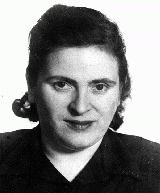You searched for: ust众筹理财项目定制开发【tg���������@ek7676】平台包网搭建unit众筹理财项目定制开发【tg���������@ek7676】平台包网搭建inhrgdhghm
<< Previous | Displaying results 1391-1400 of 1755 for "ust众筹理财项目定制开发【tg���������@ek7676】平台包网搭建unit众筹理财项目定制开发【tg���������@ek7676】平台包网搭建inhrgdhghm" | Next >>
-
Chaja Kozlowski
ID CardChaja was the eldest of four children born to a middle-class Jewish family in the northeastern Polish town of Iwie. Her father earned his living as a blacksmith. Chaja first went to a private Jewish school that taught both religious and secular subjects; in the fourth grade she transferred to a public school, and also attended Hebrew school in the afternoon. 1933-39: Chaja belonged to one of the Zionist youth organizations in Iwie. They heard lectures, often on Palestine [Yishuv], and had many sporting…
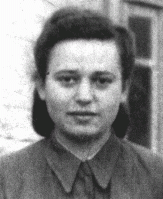
-
Henryk Lubelski
ID CardHenryk was raised in a religious Jewish family. His father was a cantor, and his parents placed an emphasis on education. In 1916 the Lubelskis moved to Rawicz, a town in German-occupied Poland. Henryk was first in his class in secondary school, where he also excelled in wrestling and soccer. After graduating, Henryk became an apprentice in a business. 1933-39: In 1935 Henryk's father secured a good position in the city of Katowice. There, Henryk worked in the sausage business. Since Katowice was close to…
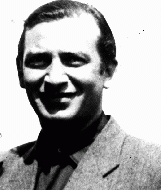
-
Gerda Weissmann
ID CardGerda was born to a Jewish middle-class family in Bielsko, Poland, a town noted for its textile industry. She began her education in Polish public school, but later entered a Catholic girls school. A rabbi was permitted to come into the school and instruct the Jewish students in religious studies. 1933-39: On Friday, September 1, 1939, German fighter planes appeared overhead, causing many people to flee the city. Gerda's family remained and lived through the intense shelling that followed on Sunday…
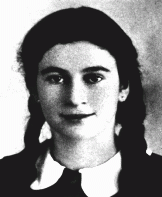
-
Selma Wijnberg
ID CardSelma was the youngest of the Wijnberg's four children, and the only daughter. When she was 7, her family left Groningen to start a business in the town of Zwolle [in the Netherlands]. There her parents ran a small hotel popular with Jewish businessmen traveling in the area. Every Friday there was a cattle market, and many of the cattle dealers came to the Wijnberg's hotel for coffee and business. 1933-39: At home Selma and her family were observant of Jewish tradition because her mother was religious.…
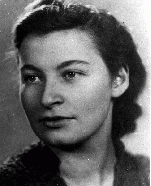
-
Thomas Buergenthal
ID CardThomas Buergenthal was born in May 1934 in the town of Ľubochňa, Czechoslovakia. His parents, Mundek and Gerda, were Jews who had fled the Nazi rise to power in Germany. In Ľubochňa, Mundek ran a hotel that welcomed other refugees and exiles fleeing Nazi persecution. 1933-39: In 1938-1939, Nazi Germany dismantled the country of Czechoslovakia and created the satellite state of Slovakia. As a result, Thomas and his family fled from Slovakia to neighboring Poland. They hoped eventually to immigrate to…
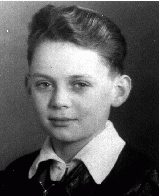
-
Walter Schnell
ID CardWalter was born to a Jewish family in the German town of Strehlen, 25 miles south of Breslau. His family's crystal business was prominent in the town for more than 100 years. Walter's parents sent him to Berlin in the mid-1920s to learn the porcelain trade. He returned to Strehlen in 1926 to help his family run the business. 1933-39: In 1937 Walter's family moved to Breslau. After the German pogroms of 1938 [Kristallnacht, Night of Broken Glass], he was deported to Buchenwald. When he arrived he was…
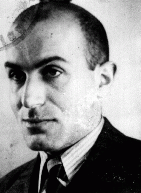
-
Elias (Elya) Grosmann
ID CardElias was born in a small town in the hill country of northeastern Slovakia. His family was Jewish, and he grew up in a religious home in which both Yiddish and Hungarian were spoken. His father was a peddler and his mother ran a small general store. Besides attending public schools, Elias received a formal Jewish education and attended Medzilaborce's rabbinical academy. 1933-39: The townspeople were mostly Jewish and worried about Nazi Germany. The German annexation of Austria in March 1938 alarmed them.…
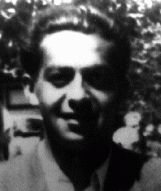
-
David Bergman
ID CardDavid was born to religious Jewish parents in a small town in Ruthenia, Czechoslovakia's easternmost province, which had been ruled by Hungary until 1918. Located in the Carpathian Mountains, the town was so isolated that news from the rest of the country would arrive by a drummer who would read the news in the town's central square. David's father worked as a tailor and his mother was a seamstress. 1933-39: While David's parents worked, he would be at home having a good time. They had a beautiful home…
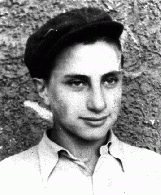
-
Chava Cherniak Biber
ID CardChava's mother died when she was 2, and Chava went to live with her grandfather, who was a rabbi in the village of Matsiov. Her grandfather's second wife welcomed Chava. After first studying at a Polish public school, Chava attended a Jewish day school. When Chava was a teenager her adopted grandmother died, and Chava took over managing her grandfather's household until he remarried. 1933-39: Chava's grandfather's third wife was an unsympathetic woman. After she came to their home, Chava wanted to be…
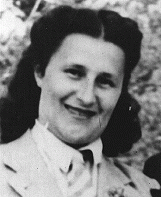
-
Paula Garfinkel
ID CardPaula was one of four children born to a religious Jewish family in Lodz, an industrial city with a large Jewish population. As a child, Paula attended public schools and was tutored at home in Jewish studies three times a week. Her father owned a furniture store. 1933-39: Paula, her brothers, and sisters spent a lot of time at the clubhouse of their Zionist group, Gordonia. Their group believed in humanistic values, Jewish self-labor, and in building a Jewish homeland in Palestine. Paula liked to work…
